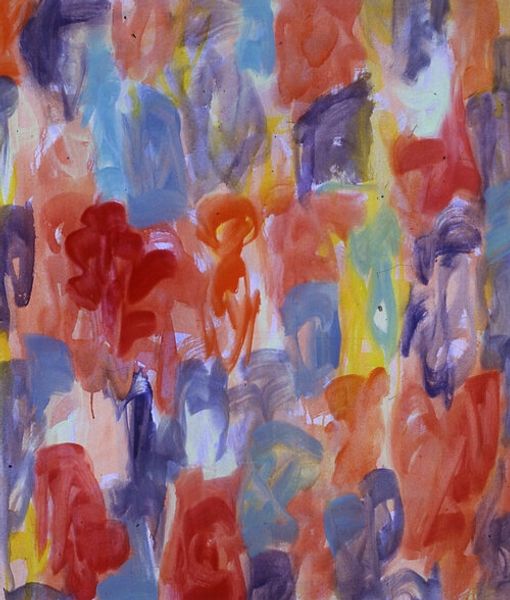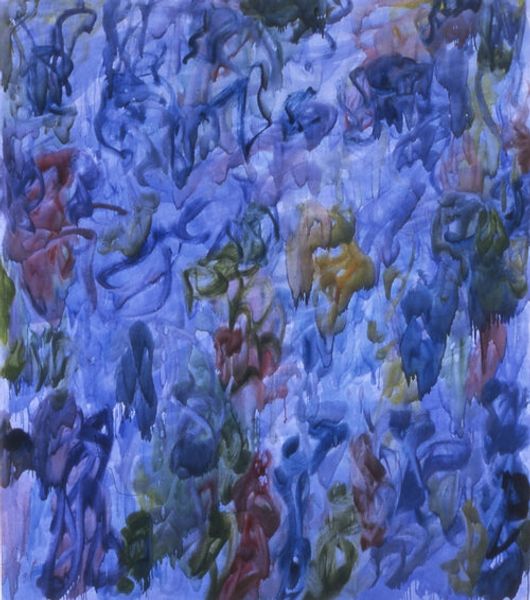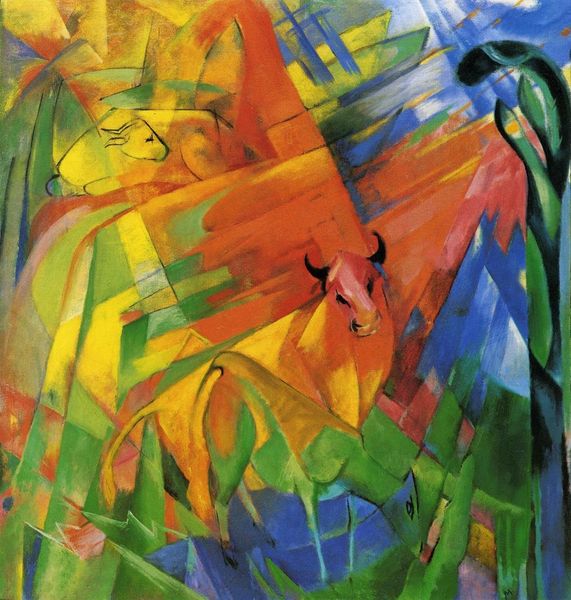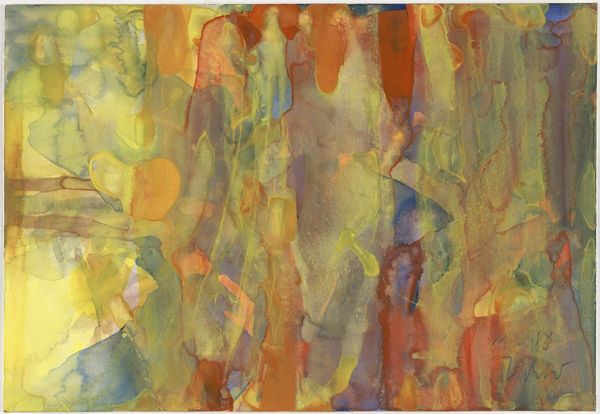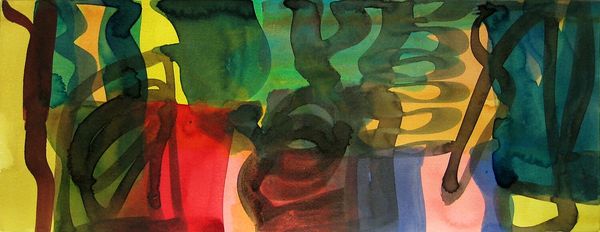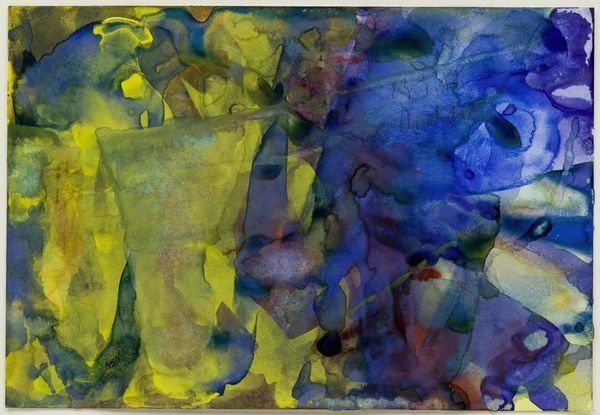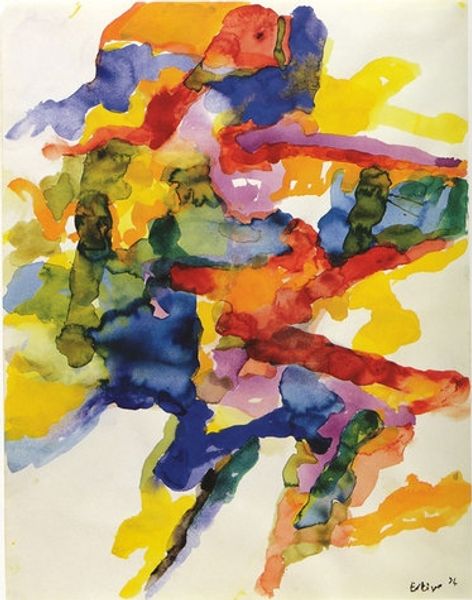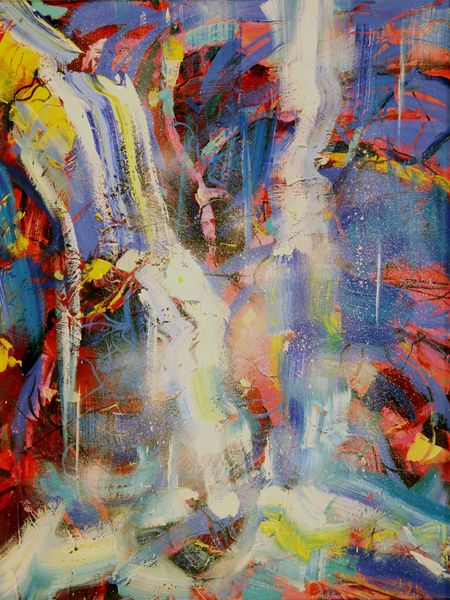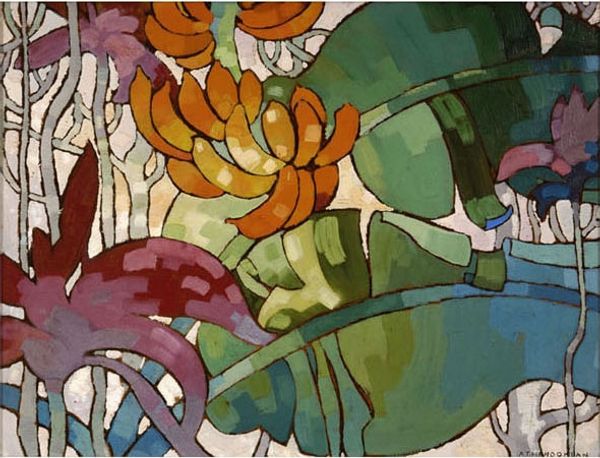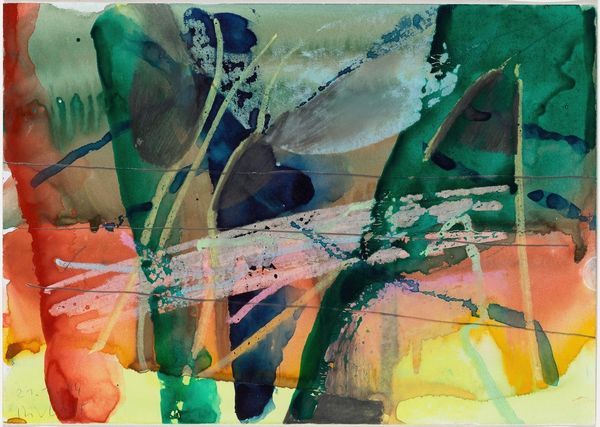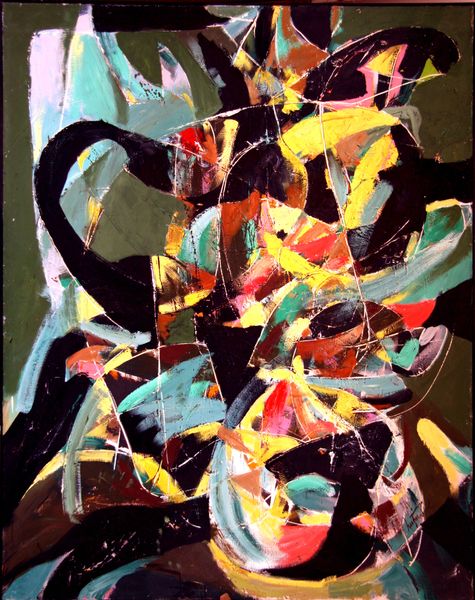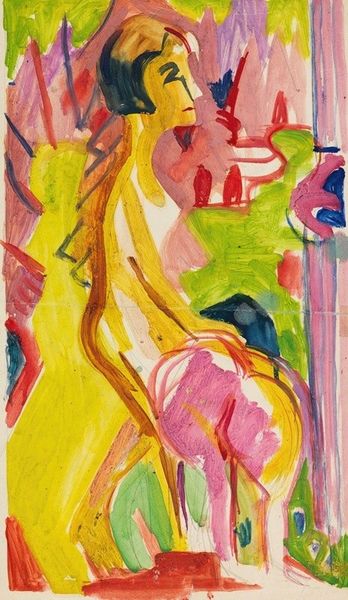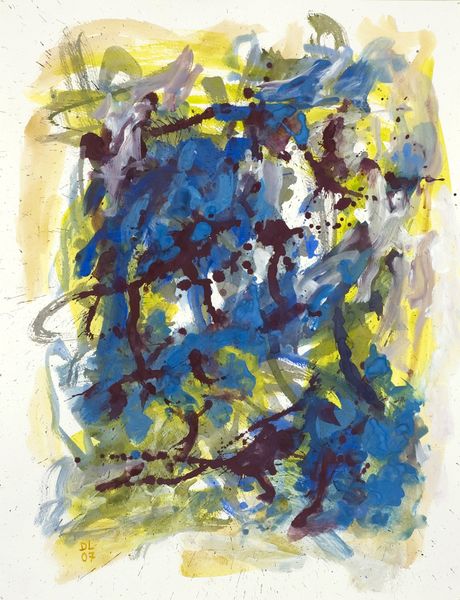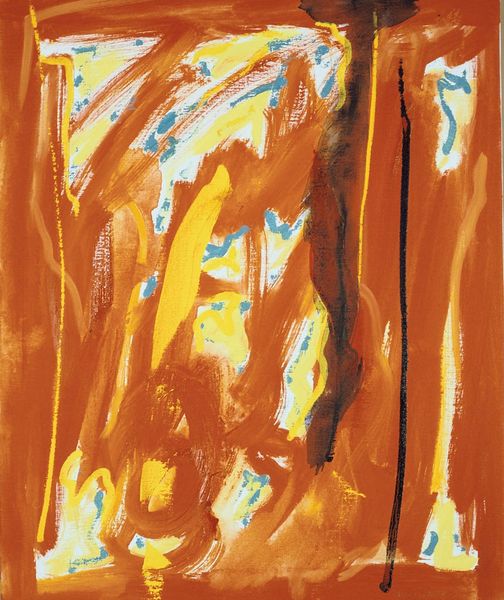
Copyright: Melissa Meyer,Fair Use
Curator: Take a look at Melissa Meyer's “In the Garden” created in 2005. It’s an acrylic on canvas piece. What's your initial impression? Editor: Whoa! It's like looking through stained glass on a rollercoaster, but instead of terror, I feel… tickled? Curator: Interesting. I'd place it within the broader context of Abstract Expressionism and Color Field painting. Meyer’s work builds on the legacy of artists like Helen Frankenthaler, particularly in her use of fluid, diluted acrylics and emphasis on colour. The social context here is the continued evolution of abstract painting, post- Greenberg. Editor: Right, and the lack of narrative grounds it completely in form. I see rhythmic lines bouncing off colour blocks. Reminds me of how music can be colourful. There's a delightful sense of play. Curator: It’s evocative of the freedom sought during that period, too – liberation from conventional representation. The loose geometry hints at garden elements perhaps: sunlight, water reflections, abstract shapes of leaves, the legacy of Monet but in a completely different aesthetic. Editor: I think I’m drawn to the immediacy of the gestures. You see those strokes and blotches, those imperfect lines, they’re all completely raw, like a pure brain-to-canvas splurge. Meyer lets herself respond to whatever's there on the support—she does a tango with accident, basically. Curator: Precisely! Her process breaks down the conventional image-making strategies and also allows the material properties of paint to assert themselves. But let’s think also about how we encounter art, in institutions that may legitimize the gestures, so the 'accident' becomes a valued quality of high art. Editor: Hmmm, food for thought… In a world obsessed with photo-realism and hyper-control, pieces like this make me breathe. It shows the beautiful side of the not-knowing, you know? Curator: I concur, this is certainly something to ponder more on. Thanks for your perspective. Editor: Thank you for pointing out its context and history. It enriches the way I see the painting!
Comments
No comments
Be the first to comment and join the conversation on the ultimate creative platform.
